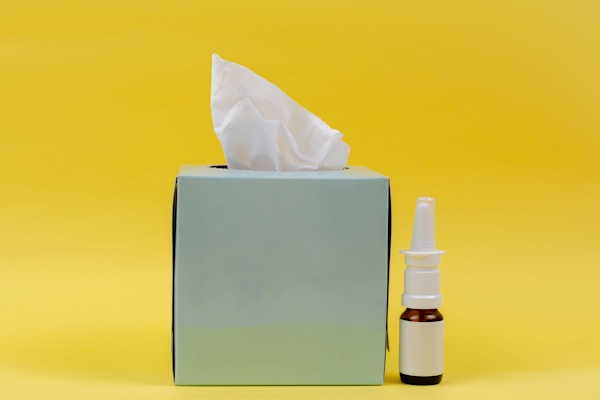Some allergies can have life-threatening symptoms. These include anaphylactic shock, which can occur when a person is exposed to an allergen that they are sensitive to. Symptoms of anaphylactic shock can include difficulty breathing, a rapid heartbeat, and a feeling of pins and needles in the extremities. If left untreated, anaphylactic shock can lead to death. Learning how to treat your allergies, manage allergy symptoms, and avoid emergency situations is essential for any allergy sufferer. If you want to learn more, read on to find out what anaphylactic shock is and how it can be treated.
What is anaphylactic shock and how is it treated?

Anaphylactic shock is a life-threatening allergic reaction. Symptoms can include a sudden drop in blood pressure, a rapid heartbeat, dizziness, and difficulty breathing. Anaphylactic shock can occur within minutes of exposure to an allergen, such as peanuts, shellfish, or a bee sting. If left untreated, anaphylactic shock can lead to death. Treatment for anaphylactic shock includes medications to improve blood pressure and breathing, and an adrenaline injection to help reverse the reaction. If the person has a known allergy, they should carry an EpiPen or other emergency epinephrine injection device.
If someone is having an anaphylactic reaction, they will likely be experiencing difficulty breathing, hives, and a rapid pulse. If you are with someone who is having an anaphylactic reaction you should call 911 immediately so they can be taken to an emergency medical center, like this facility that provides emergency medical care in Clifton, NJ. If you can, move the person to a safe place where they can breathe easily. If they’re wearing constricting clothing, loosen it as much as you are able to. In the event that the person is carrying an epinephrine auto-injector (such as an EpiPen), help them inject the medication into their thigh muscle.
Once they are in the emergency room, if they are unconscious or have difficulty breathing, they may need to be intubated and given oxygen. Intubation is the placement of a tube down the throat and into the airway in order to help you breathe. If you are experiencing anaphylaxis, it is important to seek medical attention immediately.
How else can you manage allergy symptoms?

If you are one of the many people who suffer from allergies, you know that finding relief is essential to having a good quality of life. Allergies can cause a wide variety of symptoms. Pollen allergy symptoms, for example, often include a runny nose, itchy eyes, and a rash, which can make it difficult to perform everyday activities. While over-the-counter medications can provide some relief, they often are not enough. If you are looking for more effective treatment options, you may want to consider seeking out allergy therapy. Allergy shots, allergy drops, and other therapies like immunoplasty can make a significant difference in your overall quality of life. You can talk to an allergist if you need advice on which treatment options are best for you.
Reducing the presence of allergens in your home is key to keeping your symptoms under control. One of the best ways to do that is by using an air purifier. An air purifier can remove a wide range of allergens from the air in your home, including pollen, dust mites, and pet dander. Doing so can help to significantly reduce your exposure to these allergens and improve your quality of life. You can do some research online to learn more about the different types of air purifiers and find the one that’s best for your needs.
Anaphylactic shock can be a very scary experience, but there are a lot of things you can do to reduce your risk of experiencing it. If you are at risk for anaphylactic shock, make sure to always carry an epinephrine auto-injector with you, and know how to use it. If you experience any of the following symptoms, seek medical help immediately: difficulty breathing, swelling of the throat, difficulty swallowing, dizziness, or a weak and rapid pulse. Reducing the number of allergens you encounter and finding regular treatments for your allergies are both good steps to take that can save your life.



